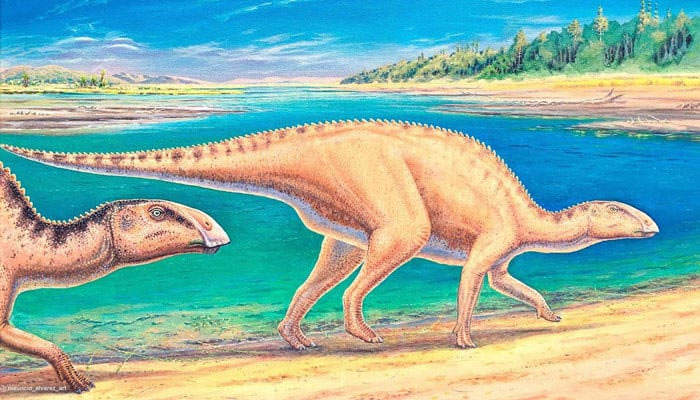Astounding discovery: 72 million years old dinosaur found
"First, we thought it was from same group as other South American hadrosaurs, but it was unprecedented," says scientist
June 19, 2023

Scientists, in a new study, discovered new fossil remains of a dinosaur from duck-billed species — dubbed as Gonokokken nanoi — which lived in the South American country Chile 72 million years back.
The plant-eating dinosaur had a weight of nearly a ton and, according to estimates, could grow to 4 metres (13ft) in length.
The research published in the journal Science Advances was based on the decades-long investigation into the remains of the plant-eating creature.
Gonkoken is made up of two words from the language of the indigenous Aonikenk people, who inhabited Patagonia until the end of the 19th century.
"Gon" means similar or similar to, and "koken" means wild duck or swan.
"Nanoi" is in recognition of Mario 'nano' Ulloa, a former rancher who provided the team with support during the first discoveries.
An excavation mission under the guidance of the Chilean Antarctic Institute (INACH) unearthed fragments of yellowish bones at the bottom of a hillside close to the Torres del Paine national park in Patagonia, back in 2013.
The lead author of the study, Jonathan Alarcon, said: "At first, we thought it was from the same group as other South American hadrosaurs, but as the study progressed, we realised that it was something unprecedented."
“Researchers had to delicately extract more than 100 pieces of bone, taking care not to damage others in the process,” he said.
To keep these in view, palaeontologists had to ensure the fossils belonged to the same species and check them with the already researched species through existing data to verify that it was a new kind of dinosaur.
Alexander Vargas, another study author, noted: "[The] Gonkoken nanoi is not an advanced duck-billed dinosaur, but rather an older transitional duck-billed lineage — an evolutionary link to advanced forms."
With the help of available data and findings, scientists were able to construct a digital edifice of the skeleton — and they're now planning to create a 3D print so it can go on public display.











